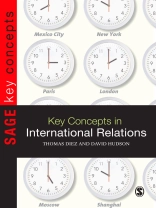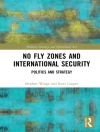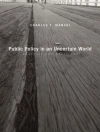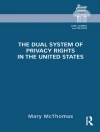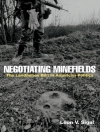International relations is a vibrant field of significant growth and change. This book guides students through the complexities of the major theories of international relations and the debates that surround them, the core theoretical concepts, and the key contemporary issues. Introduced by an overview of the discipline′s development and general structure, the more than 40 entries are broken down as follows:
Parts one and two introduce the key theories and each chapter includes:
- A broad overview
- A discussion of methodologies
- A review of empirical applications
- A guide to further reading and useful websites
Part three discusses the major concepts and for each concept provides:
- An introduction to the core questions
- An overview of the definitions and theoretical perspectives
- A review of empirical problems
- Links to other entries, further reading and useful websites
Clear and highly readable, Key Concepts in International Relations is an essential guide for students on politics and international relations courses.
Зміст
Anarchy
Balance of Power
Conflict Resolution
Democratic Peace
Dependency
(International) Development
Diplomacy
Discourse
Empire
Theory Concept
Feminism and Gender
Foreign Policy Analysis
Functionalism
Game Theory
Global Governance
Globalization
Hegemony
Human Rights
Humanitarian Intervention
Ideas and Norms
International Ethics
International Law
International Regimes
International Society
Levels of Analysis
Theory Concept
Liberalism and Neo-Liberalism
Theory Concept
Marxism and Critical Theory
Migration
Nationalism and Ethnicity
Peace and War
Peacekeeping
Theory Concept
Postmodernism and Post-Structuralism
Power
Theory Concept
Realism and Neo-Realism
Regional Integration
Security
Security Community
Security Dilemma
Theory Concept
Social Constructivism
Sovereignty
Territoriality and Borders
Terrorism
References
Про автора
Thomas Diez is Professor of Political Science and International Relations at the University of Tübingen. He received his Ph D from the University of Mannheim in 1999. From 1997 to 2000, he was Research Fellow at the Copenhagen Peace Research Institute and subsequently, from 2000 to 2009, Lecturer, Senior Lecturer and then Professor of International Relations and Head of Department at the University of Birmingham. He joined Tübingen in April 2009. Thomas has also taught in Copenhagen, Aarhus, Munich and Victoria (BC). Among his publications are The Routledge Handbook on Critical European Studies (co-editor, Routledge, 2021), The EU and Global Climate Justice (co-author, Routledge, 2021); The EU, Promoting Regional Integration, and Conflict Resolution (co-editor, Palgrave 2017), The Securitisation of Climate Change (co-author, Palgrave, 2016), Key Concepts in International Relations (co-author, Sage 2011), An Introduction to International Relations Theory: Perspectives and Themes (co-author, third edition Pearson 2010), European Integration Theory (co-editor, second edition Oxford UP 2009) and Cyprus: A Conflict at the Crossroads (co-editor, Manchester UP 2009). In September 2009, he received the Anna Lindh Award for his contribution to the field of European Foreign and Security Policy Studies. Thomas was President of the European International Studies Association (EISA) 2015-7.
